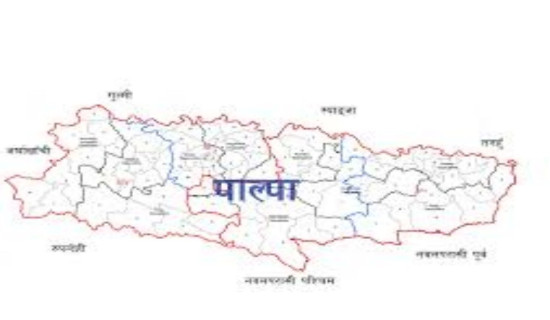- Thursday, 29 January 2026
Protect Pollinators
Known as the country's economic backwater, Karnali Province grapples with a multitude of challenges that hinder its all-round development. Its rugged and mountainous terrain coupled with inadequate connectivity and sparsely distributed settlements stand as obstacles for its socio-economic prosperity. As a result, it lags behind other provinces in numerous human development indicators. With entrenched penury, the Karnali people have disproportionately suffered from food and nutrition insecurity. A study conducted by the United Nations Development Programme has revealed that only 23 per cent of its population enjoys food and nutrition security despite the fact that the province has high potential in medicinal herbs and their trade, tourism, energy, and agribusiness. It is also a home to valuable natural resources such as mineral oils, mines, and precious gemstones. If tapped them effectively, they greatly contribute to raising the living standards of the people.
With a view to boost agricultural productivity, the Karnali provincial government has decided to implement a comprehensive pollinator strategy that seeks to overcome threats facing the pollinators' population. Pollinators, such as bees, butterflies, and flies, play a crucial role in crop production but they are declining at an alarming rate due to many factors, including agricultural intensification, pesticide use, habitat loss, and climate change. An estimated 70 per cent of crops cultivated in Karnali rely on pollination. These statistics alone should serve as a wake-up call for policymakers and stakeholders in protecting and increasing the population of the useful insects.
While the proposed strategy aims to incorporate crop protection methods centred on pollination, it is essential to take a holistic approach that addresses the root causes of pollination decline. Simply promoting alternative farming practices without addressing the underlying issues of habitat destruction, pesticide misuse, and climate change would be akin to treating the disease without tracing the symptoms. There is a lack of knowledge and skills related to pollination and pollinators among many farmers. The knowledge gap must be bridged by education and awareness campaigns, targeting farmers. They should understand the intricate relationships between pollinators and their crops and equip them with the necessary tools to support and encourage pollinator populations.
Moreover, the strategy should not be confined to the agricultural sector alone. An integrated approach necessitates taking various elements such as urban planning, infrastructure development, and environmental conservation into account. Protecting and restoring pollinator habitats such as wildflower meadows, hedgerows, and forest patches should be a priority. It is necessary to minimise pesticide use, which has led to a significant decline of pollinators. While the strategy aims to regulate pesticide use, a more proactive approach is needed, encouraging the adoption of sustainable and eco-friendly pest management practices, such as integrated pest management (IPM) and organic farming methods. The government’s commitment to aligning the pollinator strategy with its organic province initiative is a positive step, as it promotes biodiversity.
However, the success of this strategy hinges on effective implementation and long-term commitment. Past policies have often faltered in execution, and it is imperative that the provincial government allocates adequate resources, develops robust monitoring and evaluation mechanisms, and engage stakeholders at all levels to ensure the strategy’s sustained impact. The pollinator strategy is a pivotal moment for the region’s agricultural future. This strategy ensures food security, promotes biodiversity conservation, and necessitates sustainable agricultural practices from all stakeholders. In the long run, protection of pollinators fosters a harmonious coexistence between agriculture and environment.

















